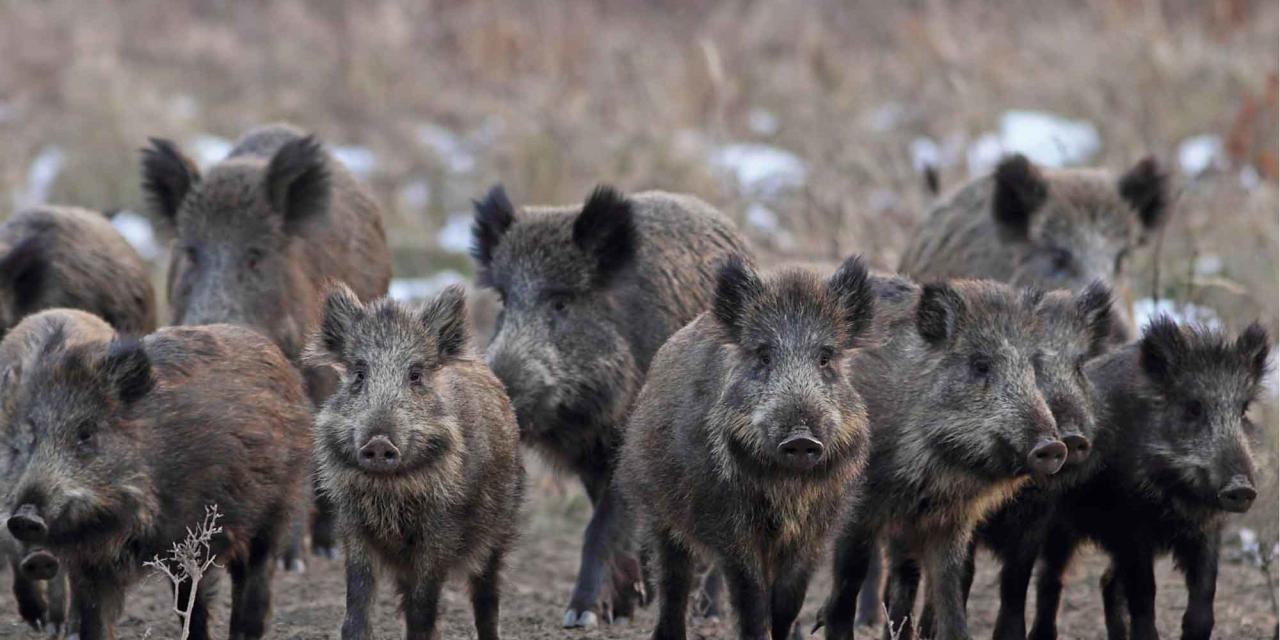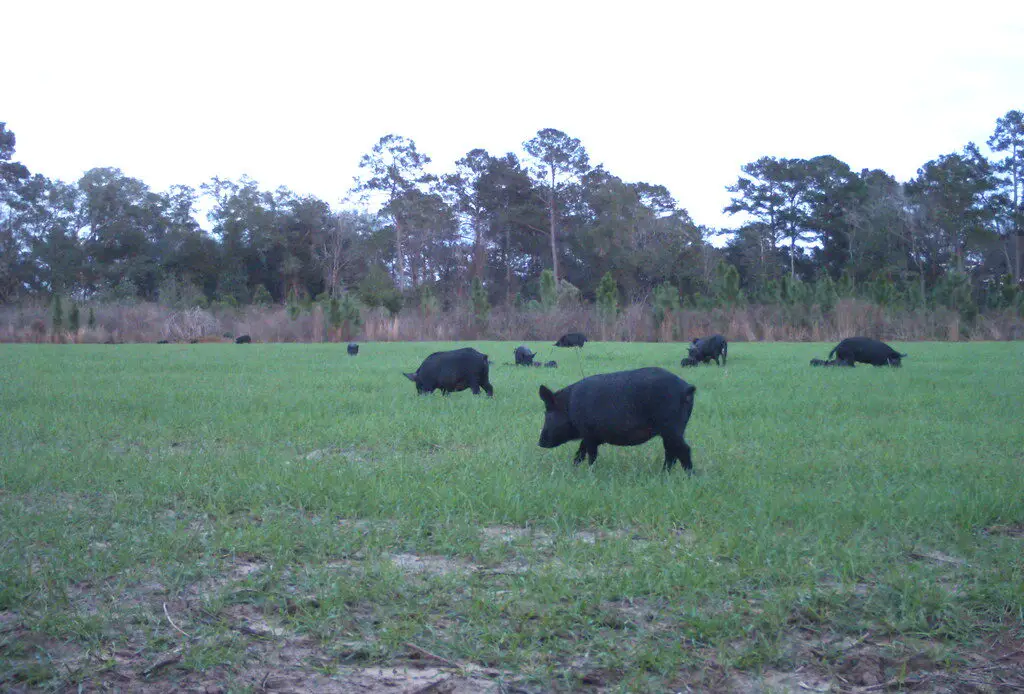Get Paid To Hunt Hogs In Georgia: A Lucrative Opportunity For Hunters
Hunting wild hogs in Georgia is not just a sport; it's a way to control an invasive species that causes millions of dollars in damage annually. If you're a skilled hunter, you might be surprised to learn that you can actually get paid to hunt hogs in Georgia. This growing industry offers a unique opportunity for those who enjoy hunting while contributing to environmental conservation.
The population of wild hogs in Georgia has exploded in recent years, leading to significant ecological and agricultural damage. As a result, the state has implemented programs and incentives to encourage hunters to help manage this invasive species. Whether you're a seasoned hunter or just starting out, this could be the perfect opportunity to turn your passion into profit.
In this comprehensive guide, we'll explore everything you need to know about getting paid to hunt hogs in Georgia. From understanding the legal framework to discovering lucrative opportunities, we'll provide actionable insights to help you capitalize on this growing trend. Let's dive in!
Read also:Zodiac Sign Of June 10 Discover The Traits Compatibility And Secrets Of Gemini
Table of Contents
- Introduction to Wild Hog Hunting in Georgia
- The Economic Impact of Wild Hogs in Georgia
- Legal Framework for Hog Hunting
- Methods of Hunting Wild Hogs
- How to Get Paid to Hunt Hogs
- Equipment Needed for Successful Hog Hunting
- Safety Tips for Hog Hunters
- Hog Hunting Seasons and Regulations
- Opportunities for Professional Hog Hunters
- Conclusion: Start Your Hog Hunting Journey Today
Introduction to Wild Hog Hunting in Georgia
Wild hogs are one of the most destructive invasive species in the United States, and Georgia is no exception. According to the USDA, these animals cause over $1.5 billion in damages annually across the country. Georgia alone sees significant losses in agriculture, forestry, and natural resources due to the growing hog population.
Get paid to hunt hogs in Georgia is a practical solution to this problem. The state actively encourages hunters to participate in hog control efforts, offering various incentives such as open hunting seasons and financial rewards. Whether you're a local resident or an out-of-state hunter, there are plenty of opportunities to make a difference while earning income.
Understanding the basics of wild hog behavior, habitat, and hunting techniques is essential for success. In this section, we'll cover the key aspects of hog hunting in Georgia, including the reasons why it's important and how you can get involved.
Why Wild Hogs Are a Problem
Wild hogs are highly adaptable and reproduce rapidly, making them a formidable challenge for wildlife management. They compete with native species for resources, destroy crops, and damage soil through their rooting behavior. Additionally, they carry diseases that can affect both humans and livestock, posing a significant public health risk.
The Economic Impact of Wild Hogs in Georgia
The economic impact of wild hogs in Georgia cannot be overstated. These animals cause extensive damage to agricultural fields, forests, and water sources, leading to financial losses for farmers and landowners. According to a study by the University of Georgia, the annual cost of hog-related damage in the state exceeds $100 million.
Get paid to hunt hogs in Georgia is not only a way to control their population but also a means to offset the financial burden on local communities. By participating in hog hunting programs, hunters can help mitigate these damages while earning income.
Read also:Who Is Mj On The Challenge Unveiling The Story Behind The Reality Tv Star
- Damage to crops: Wild hogs feed on a variety of crops, including corn, soybeans, and peanuts, leading to significant losses for farmers.
- Soil erosion: Their rooting behavior disrupts the soil structure, causing erosion and reducing land productivity.
- Water pollution: Hogs contribute to water pollution by contaminating streams and rivers with their waste.
Legal Framework for Hog Hunting
Before you can start hunting wild hogs in Georgia, it's important to understand the legal framework surrounding this activity. The Georgia Department of Natural Resources (DNR) regulates hog hunting to ensure it is conducted safely and responsibly.
Get paid to hunt hogs in Georgia often requires specific permits and licenses, depending on the location and type of hunting. Here are the key regulations to keep in mind:
Licensing Requirements
While wild hogs are considered an invasive species, hunters still need to obtain the necessary permits to legally hunt them. In most cases, a standard hunting license is sufficient, but additional permits may be required for certain areas or methods of hunting.
Open Seasons and Restrictions
Hog hunting in Georgia has an open season year-round, but there may be restrictions on the use of certain weapons or methods. For example, night hunting is allowed in some areas but prohibited in others. Always check with the Georgia DNR for the latest regulations.
Methods of Hunting Wild Hogs
There are several methods for hunting wild hogs in Georgia, each with its own advantages and challenges. The method you choose will depend on your skill level, equipment, and personal preferences.
Hunting with Firearms
Using firearms is the most common method for hunting wild hogs. Rifles, shotguns, and handguns are all effective tools, but it's important to choose the right caliber for the job. A powerful rifle is recommended for ensuring quick and humane kills.
Hunting with Dogs
Many hunters in Georgia prefer to use dogs to track and corner wild hogs. This method requires specialized training and experience but can be highly effective in certain situations. Hunting with dogs is allowed in most areas, but there may be restrictions on the number of dogs used.
How to Get Paid to Hunt Hogs
Getting paid to hunt hogs in Georgia is a viable option for skilled hunters. There are several ways to earn income through hog hunting, including:
- Hog Removal Services: Many landowners hire professional hunters to remove wild hogs from their property. This can be a lucrative opportunity for those with the necessary skills and equipment.
- Government Programs: The USDA and other organizations offer incentives for hunters who participate in hog control efforts. These programs may include financial rewards or subsidies.
- Commercial Hunting Operations: Some hunters operate commercial hog hunting businesses, offering guided hunts for clients. This can be a profitable venture if managed correctly.
Get paid to hunt hogs in Georgia requires more than just skill; it also demands a business-minded approach. Building relationships with landowners and staying informed about available opportunities are key to success.
Equipment Needed for Successful Hog Hunting
Having the right equipment is crucial for successful hog hunting. Here are some essential items to consider:
- Rifle or shotgun with appropriate ammunition
- Hunting knives and field dressing tools
- Camouflage clothing and gear
- Night vision or thermal scopes (if hunting at night)
- Dogs (if using this method)
Investing in quality equipment can improve your chances of success and ensure a safe hunting experience. Always prioritize safety and ethical hunting practices when selecting your gear.
Safety Tips for Hog Hunters
Hog hunting can be a dangerous activity if proper safety precautions are not taken. Here are some tips to help you stay safe while hunting:
- Always wear appropriate safety gear, including protective clothing and eyewear.
- Be aware of your surroundings and avoid shooting in the direction of other hunters or animals.
- Use caution when handling firearms and always follow basic gun safety rules.
- If using dogs, ensure they are well-trained and under control at all times.
Safety should always be your top priority when hunting wild hogs. By following these tips, you can minimize risks and enjoy a successful hunting experience.
Hog Hunting Seasons and Regulations
As mentioned earlier, hog hunting in Georgia has an open season year-round. However, there may be specific regulations depending on the location and method of hunting. It's essential to stay informed about these rules to avoid legal issues.
Private Land vs. Public Land
Hunting regulations may differ depending on whether you're hunting on private or public land. Private landowners often have more flexibility in terms of methods and equipment, while public land may have stricter rules.
Special Permits and Restrictions
In some cases, special permits or restrictions may apply to hog hunting. For example, night hunting may require a special permit in certain areas. Always check with the Georgia DNR for the latest information on permits and restrictions.
Opportunities for Professional Hog Hunters
For those looking to turn hog hunting into a full-time career, there are several opportunities available. Professional hog hunters can earn income through a variety of channels, including:
- Working with landowners to remove hogs from their property
- Participating in government-sponsored hog control programs
- Operating commercial hunting businesses
Becoming a professional hog hunter requires dedication, skill, and a strong work ethic. Building a reputation for reliability and effectiveness can help you establish a successful career in this growing field.
Conclusion: Start Your Hog Hunting Journey Today
Get paid to hunt hogs in Georgia is an exciting opportunity for hunters who want to make a difference while earning income. By understanding the legal framework, mastering hunting techniques, and investing in quality equipment, you can succeed in this lucrative field.
Remember to prioritize safety and ethical hunting practices to ensure a positive experience for yourself and others. With the growing demand for hog control in Georgia, now is the perfect time to start your hog hunting journey.
We invite you to share your thoughts and experiences in the comments below. Have you ever hunted wild hogs in Georgia? What tips would you offer to aspiring hog hunters? Don't forget to explore our other articles for more insights into hunting and wildlife management.

